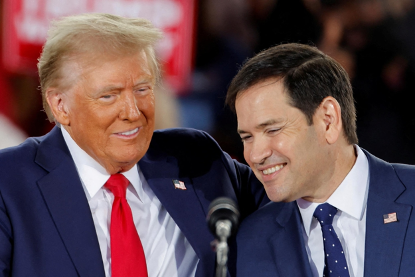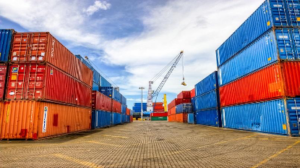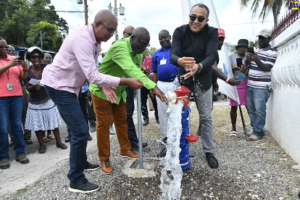While US Secretary of State Marco Rubio was landing at the Norman Manley International Airport recently, the Department of State, which he heads, was making its final edits to the condemnatory International Narcotics Control Strategy Report (INCSR). This report exposes the criminal compromises of global governments and publicly shames them into better behaviour.
Jamaica has had its fair share of shaming in these reports since they were started.
In this most recent episode, the US State Department thrashes Jamaica’s failure to combat money laundering and political corruption. It said the island’s effort to contain the scourge is being undermined by severe resource constraints and systemic corruption.
The report identified organised criminal networks – some with ties to influential Jamaicans and key players in the real estate and used car sectors – as the primary drivers of money laundering in the country.
So, even as Secretary Rubio was publicly naming Prime Minister Andrew Holness an ally, the agency he heads was shaming the nation by putting on record the fact that political and public corruption in Jamaica are the critical enablers of illicit activities.
According to Rubio’s agency, illicit proceeds, which fuel Jamaica’s underground economy, are largely generated from narcotics and weapons trafficking, cybercrime, financial fraud schemes, extortion, and corruption. Many of these crimes, the report noted, specifically target United States citizens, particularly through fraud and lottery scams aimed at elderly victims.
The State Department also flagged significant cross-border criminal activity, including the trafficking of small arms and drugs between Jamaica, the United States, Central America, Europe, and Haiti, as a major source of illegal wealth.
None of this was told to the Jamaican press when Rubio and Holness faced media microphones after their secret talks.
In fact, Rubio promised to review gun flow between the US and Jamaica, travel advisories issued against the island, and the Trump policy against the engagement of Cuban healthcare workers.
Up to recently, some 440 doctors, nurses, and other healthcare professionals from Cuba were lending critical support to bridge the gaping hole in patient care.
The majority of these neighbours were recently repatriated. According to the Minister of Health, their contractual arrangements had come to an end.
This conclusion of contracts coincided with the threats from the United States President that nations that harbour Cuban healthcare workers would be penalised with sanctions.
Secretary of State Rubio mouthed that he would be reviewing Jamaica’s plea for President Trump to allow us to keep our Cubans.
The truth is that the presence of Cuban healthcare workers is the least of Jamaica’s healthcare woes.
Jamaica’s public healthcare system is in shambles. Mould had rendered the two largest hospitals at the opposing ends of the island shut.
Healthcare workers have continued to migrate in droves. Diagnostic machines are down, and even medication for patients seems to be avoiding the chaos.
Over the past five years, the health ministry has seen a significant increase in its budgetary allocations. Taxpayers have set aside a total of $829.6 billion for the management and administration of the health sector from 2013 to 2024. But with all of this spending, nothing seems to be going in the right direction.
Questions of political corruption continue to be raised, especially about the massively multi-billion-dollar overrun Cornwall Regional Hospital refurbishing project.
On any given day, there is a long line of patients waiting for beds. Some languish and diminish on chairs and floors.
Families mourn the untimely death of their loved ones, whose hope faded in a public healthcare system that continues to fail them. The system falls woefully short of what it promises.
But the majority of Jamaicans have no option, and most, out of necessity, engage the ramshackle, pop-down operations wherever they are located when trouble comes.
What is clear is that the priorities of the governing authorities are to please themselves by awarding themselves astronomical salary increases, while offering peanut-sized raises to essential workers, such as doctors, nurses, teachers, and the security forces, and, hence, encouraging their migration.
The government is also willing to acquiesce to its US benefactor, even at the cost of further impoverishing the local public health care services. While the frail pushback against the US anti-Cuban stance by the Prime Minister is being celebrated, emissaries of the government boarded flights to Asia to seek an alternative.
Since Rubio’s visit, not a word has been uttered from the public-relations-loving health minister as to whether or when newly contracted Cuban health missionaries will land.
Hot words on the streets suggested that the health minister was numbered on the team that was headed for the continent of Asia on the healthcare worker hunt.
As the word spread and the deafening silence became unbearable, last week, a hastily drafted press release mentioned healthcare workers from the Philippines being sought to pick up where the Cubans left off.
Apparently, Asian healthcare workers, travelling approximately 9,818 miles across the Pacific, are less offensive to the United States than those from 90 miles in Caribbean waters, off Jamaican shores.
Since Rubio’s trip to Jamaica had to be more serious than reiterating what President Trump had already told the world, it must be assumed that the contents of the State Department report must have been central in the discussions with the government.
Charges of political corruption continue to be levelled against the Holness government, locally and internationally, and the link between gangland and the political clans is well known.
When the US places these much-repeated charges in its report and dispatches its Secretary of State to the accused nation, it is no laughing matter.
The prime minister has been reiterating that the security forces have his blessing in their deliberate move to take out crime bosses and gang leaders, who they say engage them in gunfights.
No one can be sure if the US has been pressuring the government to address these ills, even ahead of the report and Rubio’s visit. But these and other matters will apparently remain behind closed doors.
Even if the real talks between the prime minister and the secretary of state remain behind closed doors, know this: Jamaica is under judgement, and it is rapidly intensifying. The only recourse is repentance and turning away from wickedness. Neither Rubio nor Trump, with his raft of tariffs, can help us. Help only comes through the blood of Jesus Christ.






